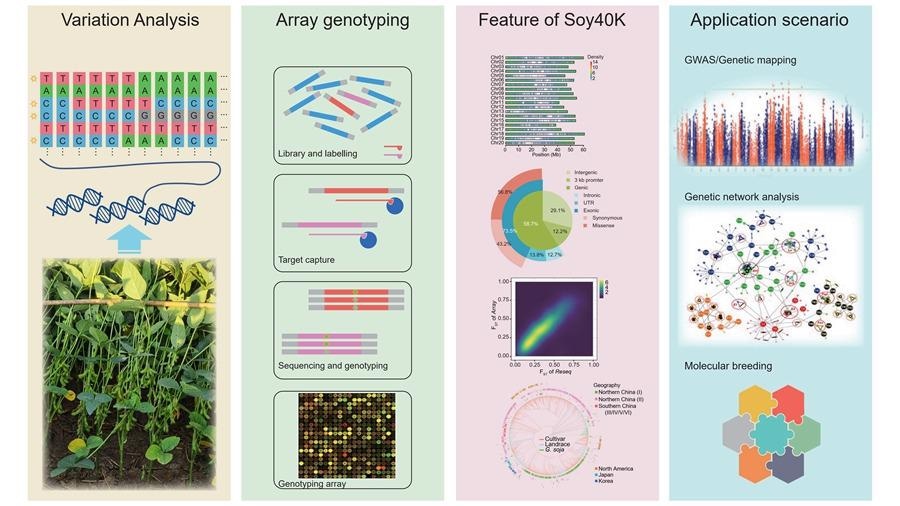Reviewed by Danielle Ellis, B.Sc.Jun 7 2022
Over a 5,000-year period, cultivated soybean was domesticated from wild soybean in China, and then extensively spread throughout the world. Soybean is a multipurpose crop that accounts for 56% of global oilseed production and more than 25% of protein used in food and animal feed.
 Character of GenoBaits Soy40K array and its application scenario. Image Credit: Institute of Genetics and Developmental Biology.
Character of GenoBaits Soy40K array and its application scenario. Image Credit: Institute of Genetics and Developmental Biology.
The global demand for soybeans is rising year after year as the world’s population grows and diets change. As a result, more efficient soybean breeding is urgently required.
Prof. Zhixi Tian of the Chinese Academy of Sciences’ Institute of Genetics and Developmental Biology (IGDB) and collaborators recently created a 40K GenoBaits genotyping Single Nucleotide Polymorphism (SNP) array to aid soybean breeding and genetic research.

Image Credit: BearFotos/Shutterstock.com
According to the investigators, the GenoBaits Soy40K was created using the 27 soybean pan-genome, 2,898 accession variation data, and 49 function-aware genes.
This genotyping platform accurately reflected soybean genetic structure and performed well in gene/quantitative trait locus (QTL) mapping and genome-wide association analysis. By molecular design breeding for the above 49 function-aware genes, particularly co-regulatory genes, the GenoBaits Soy40K array could be used to breed/improve soybean varieties with outstanding comprehensive agronomic traits.
The GenoBaits Soy40K array is built with a genotyping by target sequencing (GBTS) system, which allows for more flexibility and lower costs in genotyping. Aside from the 40K sites, there are a number of products with 20K, 10K, 5K, and foreground sites to meet a variety of needs.
Source:
Journal reference:
Liu, Y., et al., (2022) GenoBaits Soy40K: a highly flexible and low-cost SNP array for soybean studies. Science China Life Sciences. doi.org/10.1007/s11427-022-2130-8.